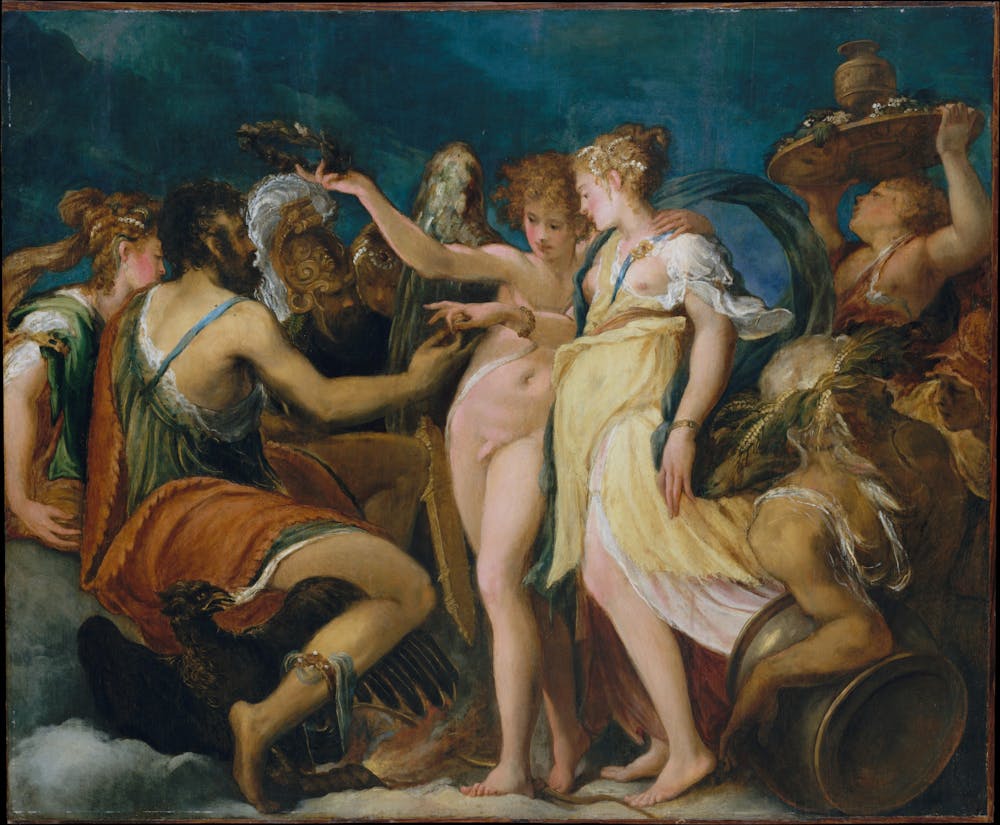
I am a romantic in every sense and in particular, regarding the idea of love.
My dreamy outlook hasn’t been a constant one, and I have no doubt that it will change again. Although it is very embarrassing, I will admit that I was a fan of the Twilight series in the fourth grade (I was definitely too young to read it). The book taught me that if you fall in love: 1) Every kiss is delightful and euphoric, 2) You will be happier than ever and — most importantly — 3) It must be “unconditionally and irrevocably” or you are doing it wrong!
Two years later, I went on to attend an all-girls middle school. By then, I had probably read most of the young-adult novels out in the publishing market, and my belief in the above mentioned lessons only grew stronger. Who was to tell me otherwise? I was in a group of children going through puberty in a skewed version of the world — the one where everyone is female and 12.
One day I came across criticisms regarding the novels I loved. One was that it wasn’t right for the heroines to always have to be rescued by a guy. This was mind-blowing. I never thought about it that way. Wasn’t that what good guys did? Save you? However I started to see things differently. I became annoyed with the “knight in shining armor” trope. Growing up, my parents emphasized empowering females and rejecting patriarchal nonsense. It was only right that females have equal voice and power in society.
Did that mean it was wrong for a man to save a woman? No, you should definitely help someone if they need your help. Everyone needs a hand once in a while. However, it does become a serious problem when stories after stories fantasize about Prince Charming sweeping up his damsel in distress. It subtly — and dangerously — perpetuates passiveness in females and takes away the chance for the heroine to become, well, the heroine.
For example, the whole point of Twilight was Edward saving Bella because she just couldn’t stay alive without him. What was the result of it? Bella became a depressed zombie every time Edward left her. Bella was not independent, and look how sad she was. Love could be happy, but it was a double-edged sword. It could leave you heartbroken if you went too deep. So I told myself, I will be holding my own bag, thank you very much.
Three years after that, I had my first kiss. It turned out that, despite vowing to take portrayals of love in the media with a grain of salt, I had kept my high hopes. Sadly, the kiss was not euphoric. No head-spinning sensation either. Nope. Just wet tongues and lips. I didn’t feel “unconditionally and irrevocably” in love; in fact, it snapped me out of the attraction I felt. I was absolutely devastated. I felt betrayed by my childhood books. Again.
When I was a high school junior, I laughed at my English teacher who said 16 is old enough to experience true love. Sure, I believed that true love existed somewhere, like between Romeo and Juliet who met when they were 14 and 16. But I also learned that Romeo and Juliet was a fiction and that, more often than not, the chance of coming across an unconditional and irrevocable love was rare. Even as I doubted Mr. Betkowski’s words, however, I still hoped I would be one of those lucky people.
Then, I did fall in love, and I was afraid. I felt like I needed to take control and be unaffected (because I turned giggly and quiet around him, and that’s dangerous!). I was terribly afraid of the aftermath: What if I fall out of love? What if we don’t click as well as I thought we would? So I hid my feelings, unsure of what to do, and we graduated from high school as good friends. But the summer after graduation, I found myself heartbroken, even though I didn’t even give myself the chance to experience anything to be heartbroken from.
Why was I not more proactive? Why was I so afraid? At first I blamed the books, then my ego and then I finally settled on the thought that I was simply shy and scared because it was a “first.” Sure, I read about it, heard about it, watched it, but I never felt it.
Often what seems mutually exclusive, in fact, exists together. You can be passionately in love, but you might not be in the next moment. Or you can be in love for a long time, but it can be a gentle one, a calm breeze. You can like someone and hate kissing them. You can kiss them and hate them all the same. Someone can be both mature and immature, or amazing and awful.
Now, I think I’ve found a balance in approaching love. There is no single right answer as to how you should feel when you are in love. Love isn’t always amazing, but it can be. Love can be felt in a second, but it can also take years to realize it. That slight tingling you feel when you look at your friend, or that girl in your Zoom breakout room, might be the first sign of a budding love. Or maybe not. Even if it was, maybe you’d be disappointed by that love after all.
So what?
Love is unexpected and uncontrollable, but I am not afraid of it anymore because it’s an inevitable part of all of us. Embrace it when it comes, and let it go gently when it leaves.





